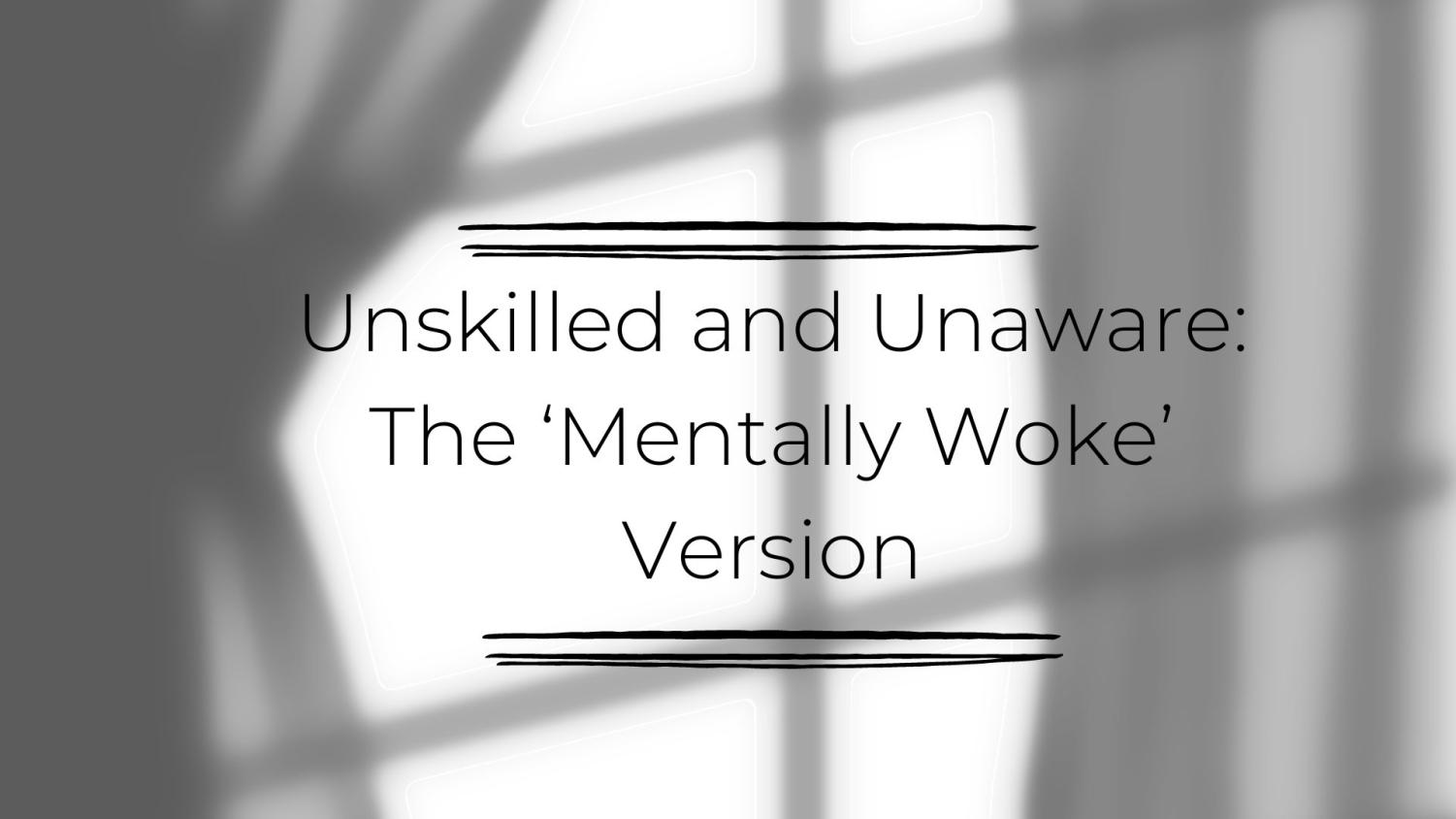Your donation will support the student journalists of North Cobb High School. Your contribution will allow us to purchase equipment and cover our annual website hosting costs.
Unskilled and Unaware: The ‘Mentally Woke’ Version
December 8, 2022
Within the ivy-covered brick-and-mortar buildings of Cornell University lie the roots of one crucial sociological study of the public’s day-to-day: the Dunning Kruger effect. In 1999, David Dunning and Justin Kruger provided a study to those holding dual-burden complications. Imagine this scenario: within a colossal lecture hall, a class taught by a Pulitzer prize winner consistently includes interruptions and debates stemming from first-year students. That conflict between expertise and false knowledge became the primary focus of the duo’s study. The two administered 65 fellow Cornell students a 30-item questionnaire about where they stood in society, mainly humor, grammar skills and general intelligence; they then asked where the participants stood in the statistics asked. The results continue to baffle and startle sociologists and research psychologists. Those with less knowledge and expertise in a particular area felt overwhelmingly confident in their abilities, while those actually over the statistical average undermined their talents. In layman’s terms, those who knew further believed they knew less or around the “average” and vice versa.
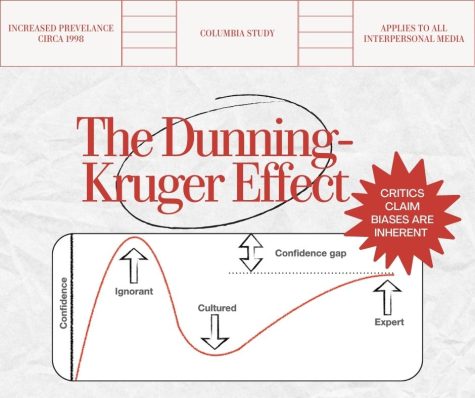
“We propose that those with limited knowledge in a domain suffer a dual burden: Not only do they reach mistaken conclusions and make regrettable errors, but their incompetence robs them of the ability to realize it,” Dunning and Kruger said.
Calling their own thesis haunting, the two men unearthed psychology that plagues society 30 years post-research, especially after the new inclusions brought by the Internet. The times of endlessly scouring the alphabetical order of obscure books without the guarantee of one’s local library carrying them cease to exist; a quick Google search combined with key terms or abstract relations can find countless sources leading anyone down rabbit holes thought not possible. This growth in knowledge generally benefits a massive amount of the global population. Intelligence, to the majority, lies within the base tier in Maslov’s Hierarchy of Needs, enabling people to expand beyond their immediate environment and understand their surroundings. Especially considering that certain governments do not encourage free, uncensored education, the ability for anyone to find the truth remains crucial. From bridging societal gaps in women and children to promoting social mobility, the public should not sneeze at the education and opportunities brought by the Internet.
“Media literacy: that’s the name of the game. The more young kids like yourself get out there and start to ask ‘is that really true’ or ‘what proves that’, the more individual people can stand up to fight misinformation. It’s a battle everyone has got to fight, especially when the whole world around us is looking,” NC AP Environmental Science and Honors Human Anatomy teacher Julie Hopp said.
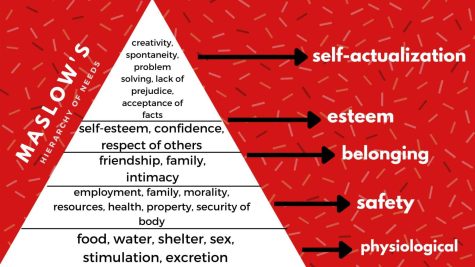
This sentiment comes with caveats, specifically, the Dunning-Kruger effect comes into play within this influx of sources of education. While true that individuals do not specialize in order to gain the surface level amount of information through the web, the amount of nuance in a majority of academia and careers still remains blocked by higher education. Unfortunately, this breeds the perfect environment for the effect to grow, with those with a lack of education and understanding believing that they carry further intelligence than those distinctly trained because of the narrowed grasp of their own intelligence. Topics like anti-vaxxers, conspiracy theorists and other deviators from the widely understood truth exist because of this confirmation bias. Nevertheless, while several could argue that society has adapted to become increasingly supportive of new ideas and beliefs, there remains a worship of false intellectualism; this has progressed what originally annoyed professors or co-workers to full-blown reintegration of societal cleavages.
An intensified amount of people believe that they hold intellectual superiority over the most minute aspects of life. This intrudes on the actual identities of the individuals exerting their “knowledge”; namely, mental health, the worst avenue for the effect to transpire.
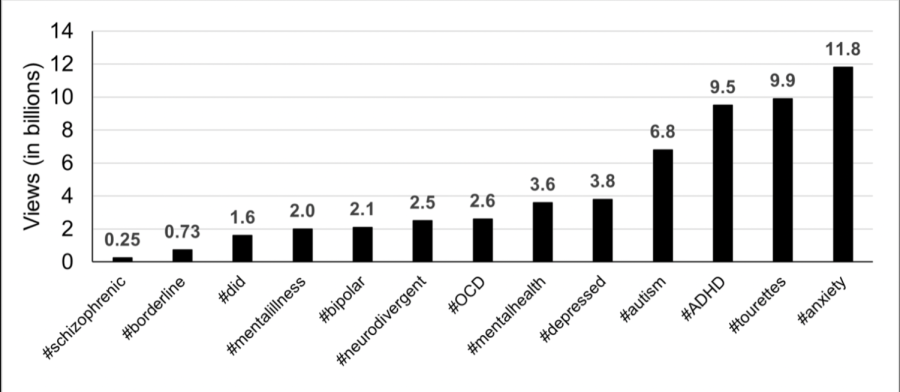
Globally, people have begun to open their arms to the idea of mental health, and for important reasons. According to the National Alliance on Mental Illness (NAMI), one in five American adults experiences mental health complications, with half of those cases beginning by ages as young as 14. While a multitude of other individuals has studied the shift currently residing within culture, the rundown follows this: previously, society viewed mental illness and issues as disgusting and shameful, but through the heightened stressors that the pandemic placed on everyone, it broke down several walls of bias within millions. This awareness continues to transform into acceptance of younger generations, such as Gen Z.
However, like a fungus, this unfound understanding of a situation has only been greatly understood by professionals since the late ‘80s quickly became the sport of wokeness.
Like most critical issues within American society, they start with the largest social cleavage of race, divvying themselves up from there. While people typically associate woke politics with situations such as critical race theory and other general hardships, online media powerhouses have shifted the meaning to become more ubiquitous for anything controversial and politically correct; such as the case for mental health in America.
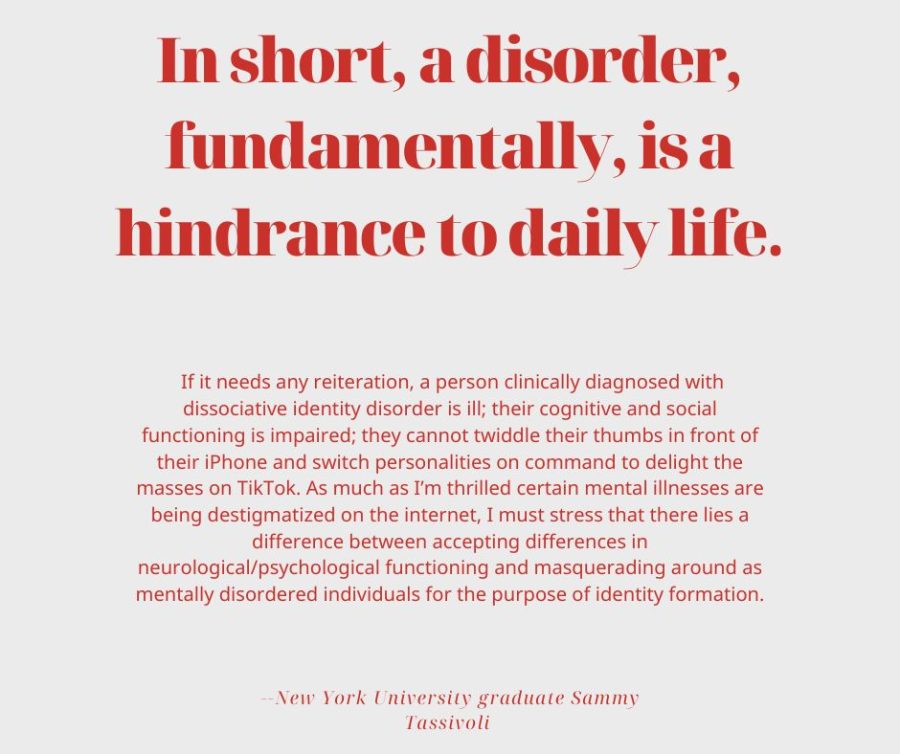
The critical concept to understand mental health will forever remain the continuous growth and education needed for everyone affected or afflicted with anything relating to it. Especially for those already automatically persecuted by the societal norms around them —women, children and people of color— the deficits faced did not equate to people not believing in depression, but instead people not believing in individual rights. Sad people existed, but people also died; that continues to become ignored and swept under the rug.
“I watch kids every day and there’s still this focus on what can ‘heal’ or ‘connect’ them. Like, whenever you have these major issues within society, you always see those who society feels are less than worthy of any real focus or value bond together with one another…it’s the work I deal with and see every day. I saw it working for [New York City’s] YMCA, and it’s the same strive I see in my research. Think of it the same as those who are in a cult of some kind; they resocialize themselves to feel connected when in reality they’re miserable,” NYU graduate student Jasmine Gatewood said.
However, the standards could become potentially critical for communities consistently negated by mental health systems, in addition to health in general. Black women especially showed the lowest rates of initial COVID-19 vaccine respondents. This stemmed from a multi-century distrust of medical professionals, especially given the Tuskegee experiments and the horrific low mortality rate for Black mothers. These factors rightfully warrant skepticism within said communities, but they do not excuse or exclude individuals for becoming the controlling factor over their lives. The influx of Black doctors both in the physical and mental health spaces has increased by 25% since 1987. Analysts expect those numbers to increase exponentially by 15% in the next two decades alone, creating a safer space for BIPOC people to feel protected by the services meant to help them become successful. With that understood, instances continue to surface where both fields need to create quicker changes, such as cases of Black people with autism. Due to their distinctive socialization, Black people —again, especially Black AFAB (Assigned Female at Birth) people—do not share the same symptoms for autism as their White, male counterparts.
“I think there’s a distinct lack of awareness when it comes to, like, people with disabilities. You don’t want to have ADHD, or BPD, or Bipolar disorder, or anything like that. As someone who’s [parent] works in the mental health field, you [young individuals] really just want to have a name to their pain; but at this point naming everything based on really surface level symptoms on WebMD really just causes more harm than good, especially with already stigmatized illnesses like Autism and other personality disorders,” magnet senior Harmony Tonner.
Regardless, all the factors listed come down to one main status quo: lack of access. The gatekeeping nature of medicine —mental health or otherwise—continues to place societies most marginalized into bubbles, confining them into continuous suffering. The false liberation of ideas only perpetuates a disillusioned culture; a fact only exacerbated by the modern political climate. From the blatant disregard for well-known knowledge to the continuous spread of false narratives, the only way to combat the continued psychological effects would stem from placing egos aside and assisting those who need them the most. This call to action could become the olive branch that finally begins to chip away at generations worth of fear from the two psychologists; undoing the damage of what brought them the most fear: ignorance.
